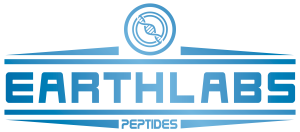The quick take
A well-planned plant-based diet can meet most nutrient needs, but a few nutrients are harder to get consistently from plants alone. For most vegans—and many vegetarians—the “must-consider” list is Vitamin B12, Vitamin D, iodine, and long-chain omega-3s (EPA & DHA). Depending on age, sex, goals, and food choices, iron, calcium, zinc, selenium, and choline may also deserve attention. Optional performance boosters like creatine (and sometimes taurine) can be helpful.
Why some nutrients are trickier on plants
Plants are nutrition powerhouses, but they don’t naturally supply every nutrient in the most bioavailable form or at adequate levels for everyone. Examples:
- B12 is made by bacteria—not plants. Fortified foods help, but intake can be sporadic.
- EPA/DHA are found mainly in fish; plant ALA converts incompletely.
- Iodine varies wildly in soils and sea vegetables, making intake inconsistent.
- Iron, zinc, and calcium are present in plants, but phytates and oxalates can reduce absorption.
The essentials (and smart ranges)
These are evidence-based general ranges for healthy adults. If you’re pregnant, planning pregnancy, nursing, managing a medical condition, or taking medications, talk to your clinician for personalized dosing and lab follow-up.
1) Vitamin B12 (cobalamin) — non-negotiable for vegans
- Why: Supports red blood cells, nerves, DNA. Low B12 can be silent for years.
- How much:
- Daily: 50–100 mcg cyanocobalamin or methylcobalamin, or
- Weekly: 1,000–2,000 mcg once per week.
- Tips: Sublingual vs. swallow is personal preference—absorption is similar at higher doses. Check serum B12 with MMA or homocysteine if you want confirmation.
2) Vitamin D3
- Why: Bone, immune function, mood. Sun exposure and latitude matter.
- How much: 1,000–2,000 IU (25–50 mcg) daily is common; adjust to keep 25-OH-D in an optimal range per your clinician.
- Vegan note: Look for vitamin D3 from lichen (vegan-friendly).
3) Iodine
- Why: Thyroid hormone production (energy, metabolism).
- How much: ~150 mcg/day for most adults from iodized salt or a supplement.
- Caution: Avoid megadose seaweed (especially kelp) due to huge iodine swings; excess can stress the thyroid. If you have thyroid disease, discuss with your clinician before supplementing.
4) Omega-3s (EPA + DHA)
- Why: Heart, brain, eyes; plant ALA (flax, chia, walnuts) converts poorly to EPA/DHA.
- How much: 250–500 mg combined EPA+DHA daily from algal oil.
- Bonus: Keep ALA-rich foods in the diet; they’re still beneficial.
Common “nice to have” add-ons
Iron (individualized)
- Why: Oxygen transport, energy. Menstruating individuals are at higher risk of low iron.
- Food first: Lentils, tofu/tempeh, beans, pumpkin seeds, fortified cereals. Pair with vitamin C (citrus, peppers).
- When to supplement: If you have symptoms (fatigue, hair shedding) or low ferritin.
- How much: Often 18–27 mg/day when needed, but test ferritin first—too much iron is harmful. Take away from calcium, coffee/tea.
Calcium
- Why: Bone, muscle, nerves.
- Target intake: ~1,000 mg/day (1,200 mg for 50+).
- Strategy: Aim for 700–1,000 mg from food (calcium-set tofu, fortified plant milks/yogurts, low-oxalate greens like kale/bok choy).
- Supplement if short: 300–500 mg/day. Split doses ≤500 mg for best absorption. Consider citrate if stomach is sensitive.
Zinc
- Why: Immunity, skin, wound healing.
- How much: 8–11 mg/day total from diet + supplement; many vegans benefit from an extra 5–10 mg/day.
- Tip: Soaking/sprouting/fermenting beans and grains improves absorption.
Selenium
- Why: Thyroid and antioxidant support.
- How much: 55 mcg/day. One Brazil nut can contain 50–100+ mcg—powerful but variable; a 50–100 mcg supplement gives steady intake without overdoing it.
Choline
- Why: Brain, liver, methylation.
- How much: 425–550 mg/day target (diet + supplement).
- Plant sources: Soy foods, quinoa, broccoli, Brussels sprouts; many vegans fall short—consider a 100–300 mg supplement if your diet is light here.
Riboflavin (B2)
- Why: Energy metabolism; sometimes low in plant-only patterns.
- How much: 1.1–1.3 mg/day; a basic B-complex or multi covers this.
Optional performance & cognition extras
Creatine monohydrate
- Why: Muscle strength/power, cognitive benefits in sleep-deprived or strict plant-based folks.
- How much: 3–5 g/day (no loading necessary).
- Vegan edge: Omnivores get creatine from meat; vegans tend to respond especially well.
Taurine (optional)
- Why: Involved in bile acids, retina, nervous system.
- How much: 500–1,000 mg/day is common when used; evidence is emerging, not essential.
Life-stage and goal-based templates
These are examples, not prescriptions. Adjust for your diet, labs, and clinician guidance.
Minimalist Vegan Stack (most adults):
- B12: 50–100 mcg/day (or 1,000–2,000 mcg weekly)
- D3 (vegan): 1,000–2,000 IU/day
- Iodine: 150 mcg/day (or iodized salt habit)
- Algal DHA/EPA: 250–500 mg/day
Bone-Aware Stack (low dairy/fortified intake):
- Minimalist stack plus calcium 300–500 mg/day and zinc 5–10 mg/day
Athlete/Active Stack:
- Minimalist stack plus creatine 3–5 g/day; consider extra protein to reach 1.2–1.6 g/kg/day; optional taurine 500–1,000 mg/day
Menstruating or Heavy Training With Low Ferritin:
- Minimalist stack plus iron if labs confirm deficiency (dose/duration per clinician)
Pregnancy/Planning:
- Prenatal (with B12, iodine ~150 mcg, iron if needed, folate/folic acid), vitamin D, and algal DHA (200–300+ mg/day). Coordinate labs and dosing with your OB.
Food strategies that amplify supplements
- Protein quality: Mix legumes/soy with grains and seeds to balance amino acids.
- Lysine focus: Ensure 2.5–3 g/day from beans, lentils, soy, or seitan + legumes.
- Mineral savvy: Soak/sprout/ferment to lower phytates; choose low-oxalate greens for calcium; add vitamin C next to iron-rich meals.
- Fortified friends: Plant milks, yogurts, cereals, nutritional yeast (B12-fortified).
Lab tests to personalize your plan
- B12 (with MMA or homocysteine)
- 25-OH-Vitamin D
- Ferritin + CBC (iron status)
- TSH (especially if iodine intake fluctuates)
- Omega-3 Index (optional, if you want to verify EPA/DHA status)
Recheck 8–12 weeks after major changes, then 1–2×/year once stable.
Safety notes & interactions
- Iron can constipate and interact with thyroid meds/antibiotics—space doses.
- Calcium competes with iron and some meds—take at separate times.
- Iodine & thyroid: If you have thyroid disease, supplement only under guidance.
- Brazil nuts/selenium: Easy to overshoot—steady low-dose supplements are safer.
- Allergies/sensitivities: Check labels for soy, gluten, or corn derivatives.
- Quality matters: Choose brands with third-party testing (USP, NSF, Informed Choice).
Bottom line
You can thrive on a vegan or vegetarian diet with smart planning. Make B12, D3, iodine, and algal EPA/DHA your foundation; add iron, calcium, zinc, selenium, and choline as your diet and labs indicate. If you’re chasing performance or cognition, creatine is a well-supported add-on. Prioritize whole foods and fortification, use supplements to fill gaps—not replace meals, and verify your plan with periodic labs and professional guidance.
Educational content only—not medical advice. Always consult your healthcare provider before starting any new supplement.

